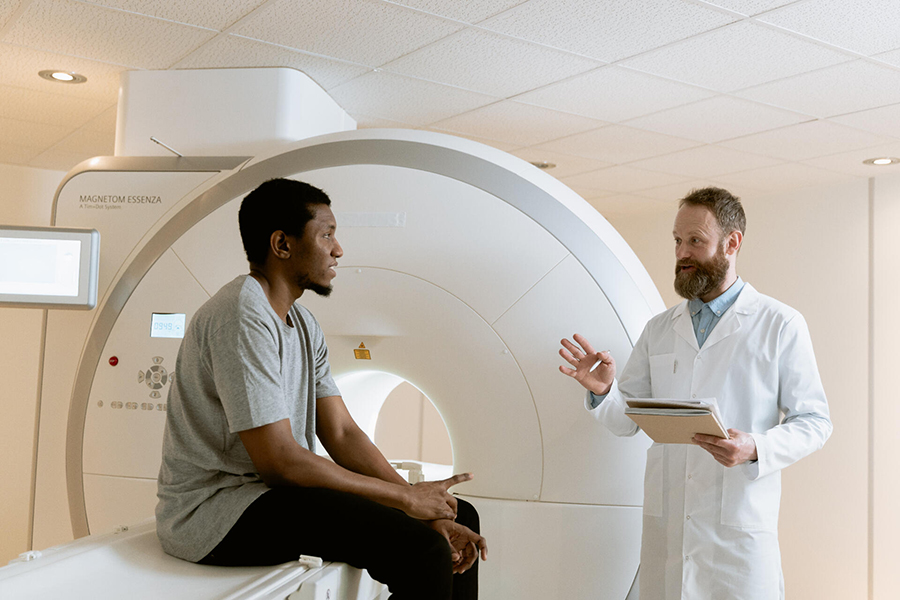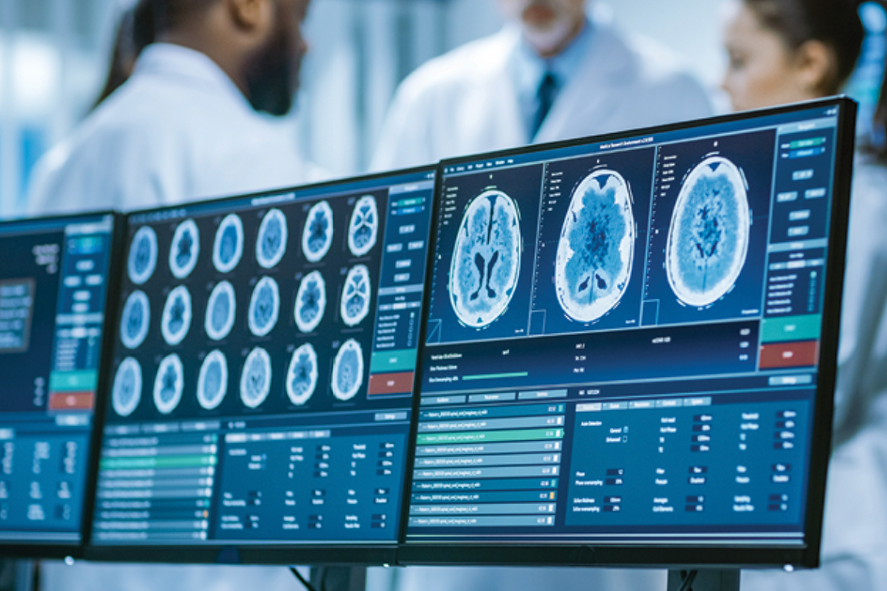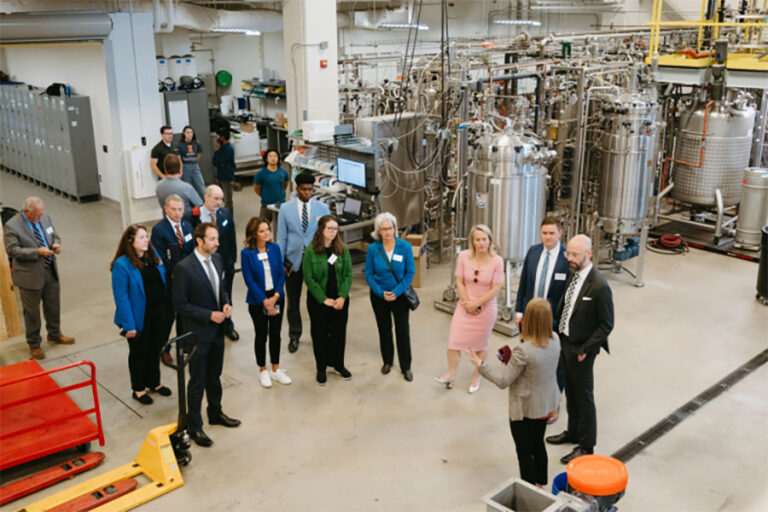
Wareed Alenaini has always been fascinated by the possibilities of preventative medicine. The Saudi-born founder of Twinn Health has developed an AI-driven analysis platform that can help doctors delay the onset of age-related diseases.
In an aging world, the ability to spot the early signs of conditions such as osteoporosis and sarcopenia could save billions of dollars in healthcare spending, slow down the onset of frailty, and ultimately improve the quality of life of the older population.
It is a vision that has always inspired Wareed Alenaini, first as a young girl growing up in a small town in Saudi Arabia and now as founder and CEO of health technology startup Twinn Health.
“The older members of my family would always complain to each other about their chronic conditions and the medications they took,” she remembers. “Even back then I realized that those diseases could have been prevented if they had been detected earlier. Now with artificial intelligence (AI) and modern imaging techniques, we have the technology and the know-how to make it happen.”
A chance conversation with a banking friend in London, where Alenaini completed her PhD at a leading research university, helped sow the first seeds of Twinn Health.

“My friend uses machine learning to analyze financial data and make predictions about loan defaults. We realized we could use the same techniques to analyze images from magnetic resonance imaging (MRI) machines. We could detect patterns in organs and tissues acting as biomarkers for age-related diseases, many years before the first symptoms appear in a patient’s blood.”
Based on Alenaini’s research, Twinn Health has developed AI that analyzes MRI images and detects metabolic disease up to five years earlier than is possible with blood tests. Whereas it can take radiologists six hours to analyze MRI data, at a high cost to healthcare providers, in just minutes Twinn Health’s system provides doctors with a risk-assessment report that is far more extensive than is possible without using AI.
“We want to make the data created by MRI more accessible,” Alenaini says. “We think the data can serve as a tool for preventative medicine.”
After securing pre-seed funding and validating the technology’s potential in clinical studies, Twinn Health is now raising additional capital and preparing to apply for regulatory approval. Alenaini is also expanding the startup’s focus to tackle other common causes of frailty and aging, including sarcopenia and osteoporosis.
“Detecting the signs of aging using modern imaging is a game changer for preventative medicine.”
Wareed Alenaini, founder and CEO, Twinn Health
By applying AI to MRI scans, the company aims to help doctors detect the onset of a wide range of metabolic dysfunction and age-related health risks. Healthcare providers can take preventative measures sooner and more effectively, while patients can live healthier, longer lives.
“We can detect physical changes in the body even at early stages of a disease,” Alenaini says. “This is going to be crucial to the future of healthcare.”

Is prevention better than cure?
I have always thought that healthcare should be more about keeping people healthy rather than about treating the sick. The world is moving towards the model of making preventative healthcare easy to access and more affordable. With healthcare technologies such as MRI we can get incredible insights into human physiology and capture the signs of disease progression early. The only problem is that it is expensive. But with AI and machine learning we can cut those costs. The future of healthcare is proactive medicine.
Why is MRI better than blood tests?
Organs first have to be damaged to give the biomarkers that will be distributed in the bloodstream and picked up by the blood test. MRI has a unique advantage. It detects early physical changes in the organs, for example in the texture, the alignment, or the thickness of the organ’s walls. With AI, we can quickly spot the patterns which indicate that a person is on the pathway to sarcopenia and other diseases long before there are biomarkers in the blood.
What results have you seen from first trials of your technology?
We have been blown away by the feedback that we’ve been receiving. Physicians using our system can diagnose metabolic disease in just 10% of the time with conventional methods. An MRI scan can take a long time to analyze manually and is very expensive. Over 70% of the cost of an MRI is in the radiologist analysis. There is a global shortage of radiologists and they are overloaded with work.
How is Twinn Health founded and where does it operate?
I founded Twinn Health in 2021 as a spin-off from my time at university with pre-seed funding from venture capital and physicians in the US and Saudi Arabia. We are present in strategic locations in the US, UK, and the Middle East. For example, the Saudi Arabian healthcare market is expanding rapidly and is highly focused on prevention and on increasing quality of life as part of Saudi Vision 2030 and the Health Sector Transformation Program. There is a real appetite in the country to invest in disruptive healthcare technologies and become a leader in the “age tech” space. It is one of humanity’s biggest challenges.
What does the future hold?
We are raising a pre-Series A round to help us fund commercial validation comfortably and progress towards approval of our technology by the Medicines and Healthcare products Regulatory Agency (MHRA) in the UK and the US Food and Drug Administration (FDA). We are carrying out clinical assessments and will be testing our metabolic health detection technology on a much greater number of patient images.
We will carry out multi-site international studies in 2023 in the UK, Canada, and the Middle East to validate the potential of our AI tools![]()
Published as branded content in WIRED magazine.









